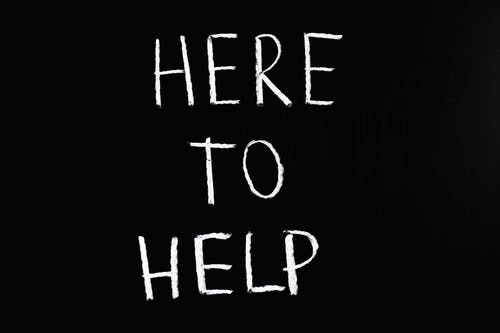Ghazali’s 20 rules for dealing with people. Rules 14-15 Hurry to help others and initiate the salam.

Rule 14: Hurry to fulfil the needs of others
The Prophet (peace be on him) said:
Intercede with me for one another and be rewarded; for indeed I want to do a thing but put I off so that you may intercede with me and be rewarded. (Abu Dawood)
Shafa means to intercede for someone. Shafa is not just limited to intercession on the Day of Judgement, but also means to help and support others, and to use your influence and connections to help others.
And cooperate in righteousness and piety, but do not cooperate in sin and aggression. And fear Allah; indeed, Allah is severe in penalty. (5:2)
Allah Almighty is commanding us to help one another to achieve goodness. The Prophet (peace be on him) said we should intercede for one another and be rewarded. Therefore, if you can help someone, then do it, or if you know someone who can help them, put them in touch with the person who can help.
Help others and connect them to those who can help
Islam does not have promote an attitude that other people’s problems are theirs, and you do not need to do anything. Whatever you can do in your capacity to help others, you should do.
For instance, if there is a student who is bright and keen, and wants to study at university but does not have the means, and you know someone who is willing to pay his tuition fees, ask them. You will be rewarded, because you helped him. Or you are aware of a fundraising project, and you know someone who can donate to it, pass on the message to them.
Shafa is like being an ambassador of goodness. Even if you didn’t fulfil the need of your brother, at least try. You might intercede and then discover it is beyond your ability, but at least you tried. Keep the flame of helping others alive in you. The moment this flame is extinguished, you adopt ‘I don’t care’ attitude.
You should feel that everything in the Muslim community is your concern. Instead of not caring, and being selfish, be the one who offers support. Islam does not support ‘Me, myself and I’. The community is one unit, so you give people a hand. When you need help you will find it because you did goodness and Allah eases the way for you.
To stand with your brother for a moment is better than your seclusion in the mosque for a year.
The reason for this is that when you support a person, the goodness ripples outwards and has a knock on effect on society. It is public benefit over private benefit. When you support someone, it is not just on person who benefits, but their wife, relatives, community, etc. Whereas when you do etikaf, the beneficiary is just you.
Do not give false hope
When you offer your help, tell them that you will try your best, but you cannot guarantee that you will be able to sort out something, don’t give false hope to people. Say ‘I can’t promise, but I will do my best’ and then genuinely do your best.
Do not intercede for haram
Remember that you cannot intercede for something that is not halal. You may not intercede for a cause or case that is not shariah complaint.
At the time of the Prophet (peace be on him) there was woman from the Bani Makhzoom tribe, which had a high status, who stole something. She used to borrow things but not return them. On one occasion she took something very valuable. The limits of shariah had been broken so the punishment was to chop off her hand. Her tribe did not want this punishment, so they decided to approach the Prophet (peace be on him) through the people closest to him, which included Zayd his beloved adopted son, who lived with them by the Prophet (peace be on him). Zayd had been Khadija’s slave (may Allah be pleased with them), before she gave him to the Prophet (peace be on him) who loved him so much he adopted him and gave him his name, until Allah revealed that it was not permissible to do this.
The Makhzoom tribe came to Zayd and asked him to intercede for the woman. Zayd went to plead her case to the Prophet (peace be on him) but he was so angry that Zayd was in effect interceding against the hudud (punishments) of Allah. He commented that if his daughter Fatima were to steal he would chop off her hand.
It was narrated from Jabir that:
A woman from Banu Makhzum stole (something), and she was brought to the Prophet. She sought the protection of Umm Salamah, but the Prophet said: “If Fatimah bint Muhammad were to steal, I would cut off her hand.” And he ordered that her hand be cut off. (Nasai)
We see from this that you cannot intercede for the haram. If you do, you will be sinful. As an example, if someone wants help to buy a pub, you cannot help him. It is obvious haram. It is not a case of helping him in anything because he is your friend. It can only be in what is permissible and legal as per the shariah.
Rule 15: Initiate the salam
There are many narrations on the etiquettes of the salam, such as greeting each other with a smile and how to greet a group, or a passerby, how it should be done between youngsters and elders, and who should say it first and how they should say it.
One of the first speeches given by the Prophet (peace be on him) when he arrived in Madinah urged people to say the salam and creates good relationships.
‘Abdullah bin Salam said:
“When the Prophet (peace be on him) came to Madinah, the people rushed to meet him, and it was said: ‘The Messenger of Allah (peace be on him) has come! The Messenger of Allah (peace be on him) has come! The Messenger of Allah (peace be on him) has come!’ Three times. I came with the people to see him, and when I saw his face clearly, I knew that his face was not the face of a liar. The first thing I heard him say was when he said: ‘O people! Spread (the greeting of) Salam, feed others, uphold the ties of kinship, and pray during the night when people are sleeping, and you will enter Paradise with Salam.” (Ibn Majah)
It is the right of every Muslim to be greeted and if he greets you it is incumbent to reply. To say salam is sunnah, to reply is wajib. Moreover, the tone of your voice is important. You should not, for instance, raise your voice when you arrive if people are asleep there, so they are not disturbed. You cannot say salam to someone who is in the toilet. Therefore we apply the rule but with the right etiquettes. Otherwise you might apply the rule without the etiquette and create more harm than good.
When we used to attend the circle of our shaykh, it was very annoying when we were all focused on his lesson, and someone arrived late but instead of sitting down quietly, he said it so loudly, he disturbed everyone’s concentration and disrupted the flow of the shaykh. This is not the correct understanding of initiating the salam.
Shaykh Haytham Tamim – The Thursday Knowledge Circle on Al Ghazali’s Forty Principles of Religion. Kitaab Al-Arba’in Fi Usul ad-Din.
This book is the last book Ghazali wrote. Towards the end of this life, after he had accomplished and completed Ihya Ulum ad Deen, he summarised the Ihya in 40 principles. In chapter 8, Ghazali looks at how to deal with people and uphold their rights.
Related posts
The first 6 rules of how to deal with people
How to deal with people according to their status (9-11)
Cover the faults of others (12-13)
- Cover the faults of others. Ghazali’s Rules 12-13 for dealing with people.
- How to deal with people according to their status. Ghazali rule 9-11
- Dealing with gossip and arguments. How to deal with people: Ghazali’s rules 7-8
- What do we learn from the Euros 2020? Lessons on success
- Should you only drink while sitting down?

Recommended Posts

Don’t be a Ramadani person – Be a Rabbani person.
April 10, 2024

The test of will – Tarawih Reflections 30
April 09, 2024

